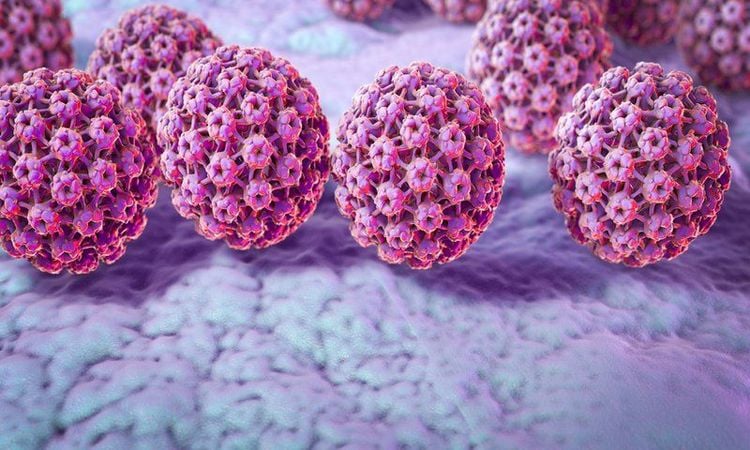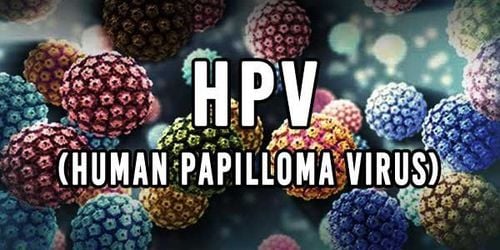This is an automatically translated article.
There are several types of cancer that have been linked to infection with the human papillomavirus (HPV) in the oropharynx. And some types of HPV are transmitted through oral sex.1. Causes of cancer of the mouth and throat
The main risk factors for cancer of the mouth and throat are alcohol consumption and smoking. However, recent evidence suggests that there is an increased incidence of cancers caused by HPV infection in the oral region.About 1 in 4 cases of oral cancer and 1 in 3 cases of throat cancer are associated with HPV, however the majority of throat cancers in young people are now associated with HPV.
Detecting HPV in a sample of a person with throat cancer does not mean that the cancer is related to HPV.
So oral sex causes nasopharyngeal cancer right? Not entirely true, because oral sex itself does not cause cancer, but it does spread HPV which is a cancer-causing agent.

Quan hệ bằng miệng làm lan truyền HPV - tác nhân gây ung thư
2. How does HPV get into the mouth?
The type of HPV found in the mouth is almost exclusively sexually transmitted, so oral sex is the main route of transmission.HPV has more than 100 different types, of which 15 high-risk types are associated with cancer. They are also transmitted by vaginal and anal sex, causing an association with cancers of the cervix, rectum, and penis.
Some types are transmitted by direct skin-to-skin contact, causing warts, including genital warts. The type of HPV that causes warts is in a low-risk group, not a group linked to cancer.
3. How does HPV cause cancer?
HPV does not directly cause cancer, but it changes infected cells and these cells can become cancerous, but it takes a long time, up to decades.Very few people infected with HPV will progress to cancer. About 9 in 10 people will clear the virus from their body within 2 years.
However, smokers are less able to eliminate the virus because smoking destroys special protective cells in the skin, allowing the virus to survive.
4. Signs of early detection of cancer
If you have any of the following symptoms, or are worried you may have cancer, see your doctor as soon as possible. Symptoms that may indicate oropharyngeal cancer are:Red, or red and white patches on the tongue or the lining of the mouth. Mouth sores that do not heal after 3 weeks. Swelling of the mouth that persists for more than 3 weeks. Pain when swallowing. Feeling of an obstruction in the throat.

Cảm giác đau khi nuốt là một trong những triệu chứng của ung thư vòm họng
5. Practice safe sex
Although there is no complete protection against HPV and other sexually transmitted diseases, using condoms and diaphragms during oral sex is a way to reduce the risk of infection.Therefore, doctors recommend people to raise awareness of the importance of throat cancer screening as well as regular health check-ups.
The package of screening, and early detection of oropharyngeal, pharyngeal, and laryngeal cancers at Vinmec International General Hospital includes:
Full range of necessary services for early detection of oropharyngeal cancer Detecting abnormalities When registering for the screening package, and early detecting cancer of the oropharynx, pharynx, larynx, customers will be screened for nasopharyngeal - hypopharyngeal - laryngeal cancer. through general otolaryngology examination with hard or soft endoscope; Software ultrasound, thereby detecting the disease early, improving the effectiveness of treatment, increasing the survival rate for patients.
You can find out more about the screening package and early detection of nasopharyngeal cancer as well as other service packages of Vinmec International General Hospital HERE.
Articles refer to sources: nhs.uk and medicalnewstoday.com
MORE:
Throat cancer: Causes, symptoms, diagnosis and treatment Signs of oropharyngeal cancer in children Throat cancer can contagious?













